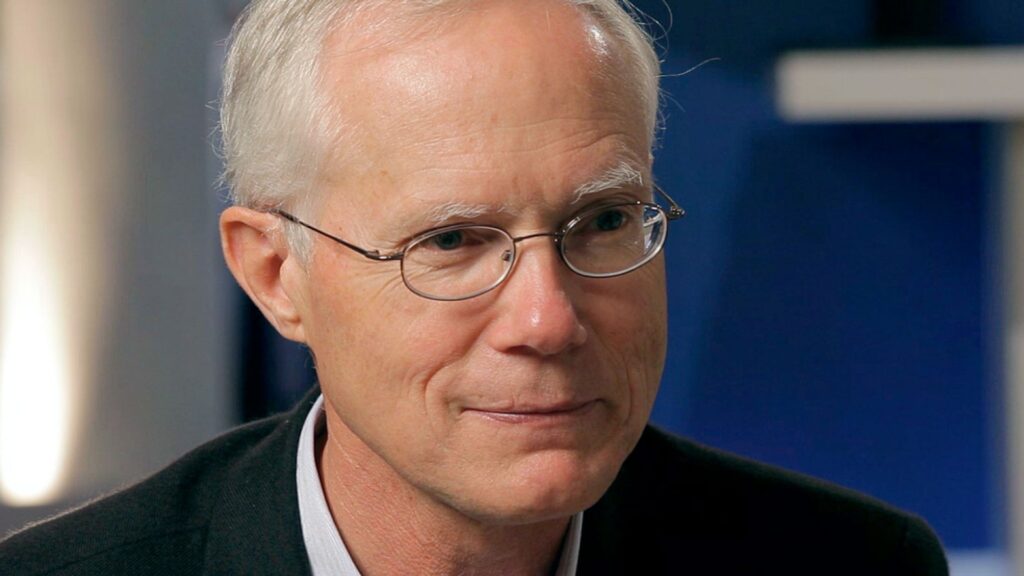
Scott David Cook is an American businessman known as the co-founder of Intuit, a business and financial software company that develops financial, accounting, and tax preparation software and related services for small businesses, accountants, and individuals.
Early life and education
Scott D. Cook was born in Glendale, California on July 26, 1952. Cook acquired a Bachelor’s degree in economics and mathematics from the University of Southern California and a Master of Business Administration from Harvard Business School, where he works on the dean’s advisory board.
Early career
Cook first started his career at Procter & Gamble in Cincinnati, Ohio, where he learned about market research, product development, and marketing. Cook then took a job in strategic consulting at Bain & Company, a corporate strategy consulting firm, in Menlo Park, California. Cook soon started using the insights he was learning there to look for a concept for a company of his own.
Intuit
Cook and Tom Proulx co-founded Intuit, a company that produces and sells financial, accounting, and tax preparation software and similar services for accountants, individuals, and small businesses, in Palo Alto, California in 1983.
The idea occurred to him one day when his wife was complaining regarding paying the bills. With computers just coming out at the time, Cook believed there might be a demand for software that would assist people in paying their bills. On his search to find a programmer, Cook ended up working into Tom Proulx at Stanford. The initial version of Quicken was coded in Microsoft’s BASIC programming language for the UCSD Pascal and IBM PC for the Apple II by Proulx and had to contend with a dozen of serious competitors.
In 1991, Microsoft decided to create Microsoft Money to compete Quicken. Intuit included a $15 rebate coupon, to win retailers’ loyalty, which was redeemable on software customers purchased in their stores. It was the first time a software company granted a rebate. In February 1993, Cook became the chairman of Intuit until July 1998 and served as president and CEO of the company from April 1983 to April 1994.
Roughly around the same time, Intuit joined John Doerr of Kleiner Perkins Caufield & Byers and expanded its product lineup. Intuit went public in 1993 and used the proceeds to obtain a significant acquisition: the tax-preparation software company Chipsoft based in San Diego. The time after the initial public offering was listed by rapid growth and ended with a buyout proposal from Microsoft in 1994; at this time, the company’s market capitalization reached $2 billion.
When the buyout dropped through because of the United States DOJ’s rejection, the company came under extreme pressure in the late 1990s when Microsoft began to compete actively with its core Quicken business. In response, the company launched new web-based products and solutions and put more emphasis on QuickBooks and on TurboTax. Intuit made various investments around this time. Among others, Intuit acquired Excite and Lacerte Software. It also stripped itself of its online bill payment service unit and increased and strengthened its partnership with CheckFree.
In June 2013, Intuit announced it would market to Thoma Bravo, a private equity firm, its financial services unit for $1.03 billion. The company laid off about 5% of its workforce in June 2015, as part of a company restructuring. As of May 2018, Intuit had over $5 billion in revenue annually and about $50 billion of its market capitalization. In August 2018, CEO Brad D. Smith announced that he would resign as the company’s CEO at the end of 2018. The company announced that at the start of 2019, Sasan Goodarzi would become the new CEO of Intuit. Smith will stay chairman of Intuit’s board of directors.
Funding rounds
In September 1984, Intuit raised $151,000 in a seed round. In September 1991, Intuit raised $12 million in a series A round, led by Sierra Ventures, Kleiner Perkins, and Technology Venture Investors. In January 2011, Intuit raised $6.7 million in a post-IPO equity round.
Intuit has raised a total of $18.9 million in funding. Intuit has $7 billion in estimated revenue annually. Intuit competes with FreshBooks, Xero, and The Sage Group plc.
Board and Advisor Roles
Scott Cook is also a part of the Board of Directors of The Asia Foundation, eBay, Procter & Gamble, Dean’s Advisory Board at the Harvard Business School, The Center for Brand and Product Management at the University of Wisconsin, and The Intuit Scholarship Foundation.
Net worth
In 2005, Cook had a net worth of $1.1 billion and was #320 on the Forbes 400. Since the 1990s, Cook has more than multiplied his donations to Democrats and Republicans, contributing the maximum in 2007, to mainstream politicians such as Harry Reid and Mitt Romney.
Personal life
Cook is married to Signe Ostby, who also worked for Procter & Gamble and Clorox before she started Software Publishing Corporation. In 2002, Cook and Ostby established in the University of Wisconsin–Madison School of Business the Center for Brand and Product Management, which is considered the first university-based center engaged particularly on training MBAs in the brand and product management in the nation.